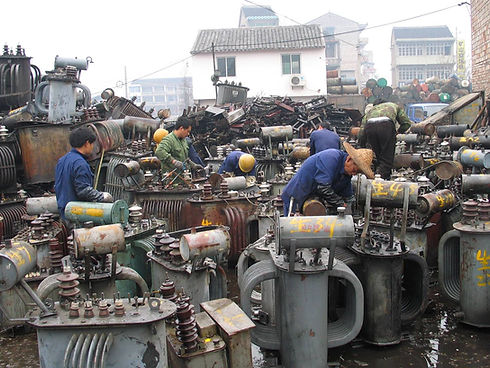
Learning Materials

Chemicals and waste related conventions
There are four global multilateral environmental agreements that regulate chemicals of global concern: The Stockholm Convention on POPs, the Basel Convention on transboundary movement of hazardous wastes, the Rotterdam Convention on importation of hazardous chemicals and the Minimata Convention on Mercury. This section provides training materials on the basics of those conventions.

Waste Management
Hundreds of millions of tons of waste are produced worldwide every year. To manage all of the waste is a vast global challenge and inappropriate management causes serious problems for humans and the environment. Therefore efficient and good management is needed, in this section we provide material on domestic waste management and open burning of wastes.

Polychlorinated biphenyls (PCBs)
PCB are man-made organic chemicals that are widely spread in the environment and have harmful effects for humans and wildlife. Their production have been stopped, however they can still be in use in for example in transformers and capacitors as dielectric oils. Their use should be banned by 2028 according to the Stockholm Convention. More details on PCBs can be found in this section.


